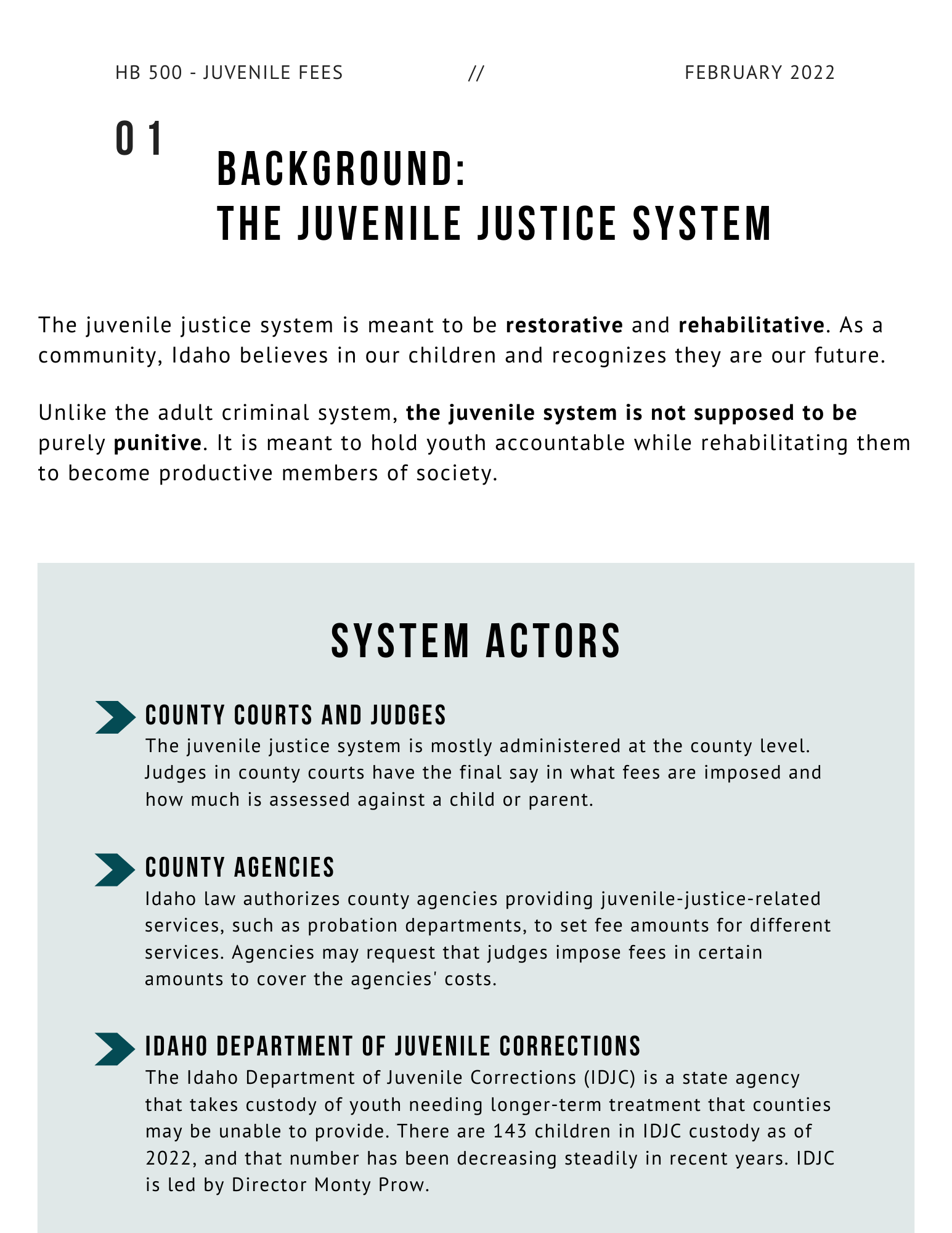Our juvenile justice system impacts the lives of thousands of children across the state each year. The juvenile justice system is meant to be restorative and rehabilitative. As a community, Idaho believes in our children and recognizes they are our future. The juvenile system is not supposed to be purely punitive. It is meant to hold youth accountable while also helping them improve their lives so that they can contribute to our communities.
Despite this goal, Idaho charges fees to children involved in the juvenile justice system. These fees can range from a $20 mandatory petition fee to hundreds of dollars in detention costs. The fees are typically assessed against both the minor and the parents. If a child or parent cannot pay, the fee becomes outstanding court debt that follows the child into adulthood and can be sent to collections where an additional collection fee up to 32% is imposed or result in a finding that they are in contempt of court. Outstanding fees can trap families struggling with expenses in a revolving door of involvement in the justice system.
In 2021, counties only collected 54% of total assessed fees, meaning that thousands of families are being left in debt. While the impact of this additional debt on low income youth is huge, counties collect relatively little in revenue from this system. In fact, 27 out of the 44 counties in Idaho collected less than $10,000 in total revenue from juvenile fees over the course of four years (2018–2021).
This has real results for Idaho children involved in the juvenile justice system.
Fees weaken relationships and strain Idaho's core economic unit: the family.
National research and a recent survey of youth in Utah show that fines and fees create tension between youth and parents and strain sibling relationships. A 2021 study of jurisdictions that eliminated juvenile fees found that across the board, families' financial wellbeing improved.
Fees increase recidivism.
Many national and state-specific studies found that court debt increases the likelihood of future system involvement for young people. This leads to worse outcomes for young people and greater long-term costs to the state.
Idaho Justice Project launched a project in spring 2021 to eliminate fees for kids in the juvenile justice system in partnership with a coalition of organizations including the Idaho Center for Fiscal Policy, Idaho Association of Criminal Defense Lawyers, Idaho Voices for Children, the National Debt Free Justice Campaign, the Berkeley School of Law Policy Advocacy Clinic, and Arnold Ventures.
Check out our partner report on fees that were imposed by the Department of Juvenile Corrections against parents of children in their custody.
Change is happening. In fall 2021, after the launch of this effort, the state Department of Juvenile Corrections implemented a new policy to stop collecting cost of care fees from parents as long as parents were assisting with their children’s rehabilitation efforts. As of summer 2023, the state has not assessed any fees against parents.
In 2022, Representative Marco Erickson introduced HB 500 that would eliminate all juvenile fees for kids and their families assessed at the county level as well. While this legislation was held in committee due to opposition from the counties, we continue to work on efforts to reduce and eliminate the assessment and collection of fees from children. Read more about what HB 500 would do in this handbook [insert link].









